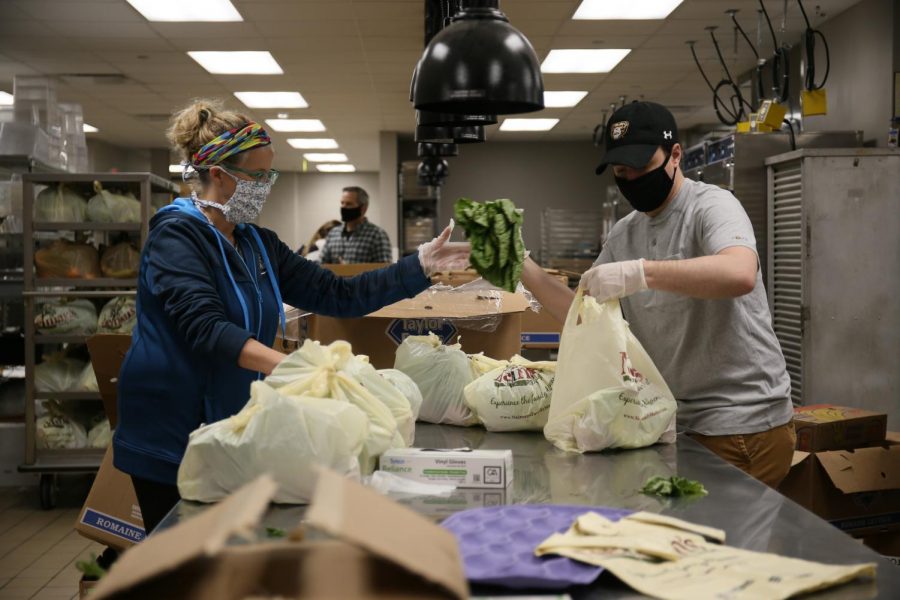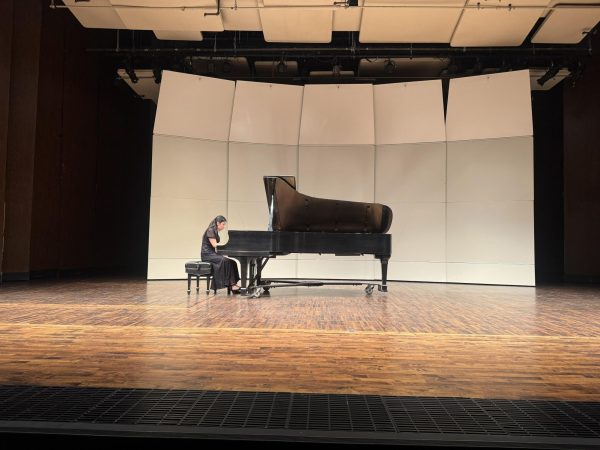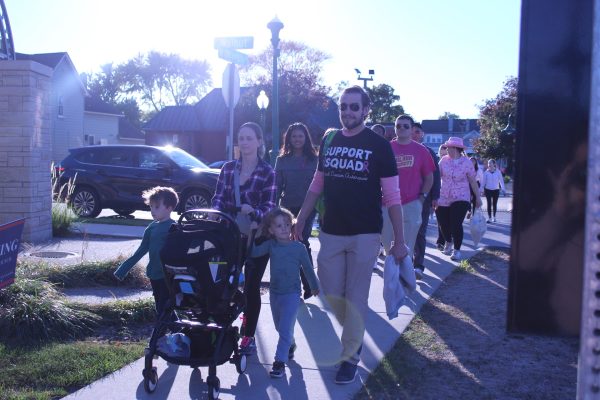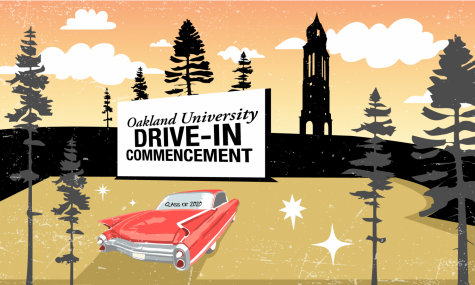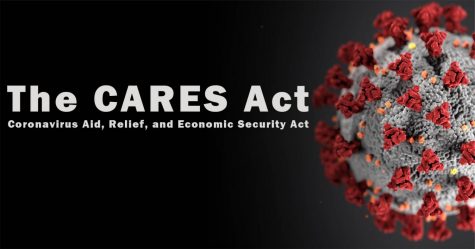Oakland Center turns into community safe haven
Two volunteers handle produce in the Oakland Center.
Many households have been strained because of Michigan’s protective stay-at-home order — struggling to generate consistent meals, hygiene products and social interaction. The Oakland Center has morphed into a bustling food distribution center, with some community members banding together to help locals, who have been negatively affected by the stay-at-home order.
“On any given day, how many people in your life do you have that you could call on if you needed help?” said Dr. Jennifer Lucarelli, chair of Interdisciplinary Health Sciences at Oakland University.
More than 800 volunteers are striving to answer that question through the food distribution center in the Oakland Center. Lucarelli emphasized that this program is meant to create “ongoing relationships outside of this crisis situation.” Each volunteer group, distribution and supply package is personalized to help provide basic and emotional needs.
Daily Process
Varying groups of roughly 25 volunteers are onsite each day organizing necessities that are tailored to each household — factors such as the size of the home, families with babies or children, elderly residents and companionship are considered. Their personalized method helps limit community travels and the spread of COVID-19.
For example, families with babies receive enough formula and diapers without searching multiple different stores, and elderly people that live independently aren’t at risk by shopping at grocery stores but can have safe socialization. These drop-offs have created helpful connections that are now only a phone call away.
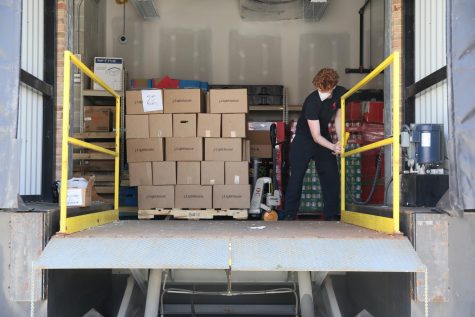
“This helps the most vulnerable populations follow the public health recommendations of ‘stay home, stay safe.'” Lucarelli said, “… At the end of the day, we are contributing to actually reducing the rates of infection and preventing people from being hospitalized.”
No person in need is required to leave the safety of their home for anything — volunteers drop-off necessities at specified homes, creating minimal contact.
Safety
Each volunteer must wear a protective face mask to contribute, and frequent sanitation is encouraged with hand sanitizing dispensers littering the halls every few feet.
Aside from physical fixtures, the number of volunteers is also limited to minimize human contact. There’s a rotation of a couple dozen people each shift, although there are hundreds of volunteers signed up.
“It’s hard because everyone wants to do something now, and we have to tell them to wait.” Lucarelli said, “To protect everybody’s health and safety, we can’t have that many people onsite.”
Volunteer Experience
Even though daily hands-on work is limited, more people are welcome to take on a role at the distribution center. People must be rotated out to reduce the spread because according to Lucarelli, “if we have the same person coming five days a week and they develop coronavirus, they have exposed our entire volunteer staff.”
The amount of people stepping up to help the community is nearing 1000, but offering another helping hand is still encouraged. Volunteering can leave a lasting impression on the community and the volunteer.
“It’s hard not to be touched by getting involved and being there for your community when times are tough…” said Merit Milad, Oakland University medical student and volunteer. “I just feel really grateful and humbled that I’m able to [help]. This is a privilege to be able to do this.”
To learn more or get involved, visit www.mycovidresponse.org or call 248-600-9541 for volunteer applications and steps to request supplies.



